
Related
Topics
Guests
- Vaward-winning playwright and creator of The Vagina Monologues and V-Day, a global movement to stop violence against women and girls. She is the director of Swimming Upstream: A Testimony, a Prayer, a Hallelujah, an Incantation. Her latest book is called I Am an Emotional Creature: The Secret Life of Girls Around the World.
Aid groups reported last week that Rwandan and Congolese rebels took over villages in the eastern part of the Democratic Republic of Congo and gang-raped almost 200 women and five young boys. The rapes occurred between July 30 and August 3, within miles of a United Nations peacekeeping base. A joint UN human rights team has now confirmed the rapes of 154 women. [includes rush transcript]
Transcript
AMY GOODMAN: The latest news out of Congo, just this week — you wrote this just a month ago. Last week aid groups reported Rwandan and Congolese rebels took over villages in the eastern part of the Democratic Republic of Congo and gang-raped almost 200 women and five young [boys]. The rapes occurred between July 30th and August 3rd within miles of a UN peacekeeping base.
The humanitarian group that documented the rapes, International Medical Corps, said aid and UN workers knew the rebels had occupied the villages soon after it happened and that they notified the United Nations about the attacks on August 6th. But it’s taken the UN nearly three weeks to respond. A joint UN human rights team has now confirmed the rapes of 154 women. On Wednesday, the top UN official in Congo, Roger Meece, said peacekeeping forces could not have prevented the rapes, because they did not know they were happening.
Meanwhile, here in New York, the UN Secretary-General Ban Ki-moon said he was outraged by the attacks and has dispatched two envoys to the eastern DRC to investigate the mass rapes.
SECRETARY-GENERAL BAN KI-MOON: The recent savage rape and assault of at least 154 Congolese civilians is another grave example of the levels of sexual violence and insecurity that continue to plague eastern DRC. It is one more brutal reminder of the challenges of keeping the peace and protecting civilians in conflict zones. Yet, beating these challenges is our collective responsibility. I have called on the authorities of the DRC to investigate this incident and bring the perpetrators to justice.
AMY GOODMAN: That’s UN Secretary-General Ban Ki-moon. Eve Ensler, your response?
EVE ENSLER: I have many responses. You know, I mean, the attacks occurred within ten to twenty miles of the UN peacekeepers. So, from my point of view, if you look at the hundreds of thousands of women who have been raped, the peacekeeping forces have been highly unsuccessful in the — and I think, to some degree, it has a lot to do with will, it has a lot to do with training, it has a lot to do with “Do we really care about the women of Congo?” because, you know, when we do care, things change overnight. You know, I think that is very, very — I have been trying to figure out for the last three-and-a-half years what is it that keeps the power elites from really changing the situation in the Congo. And I have come to the conclusion that it all has to do with minerals somewhere, that the corporations are linked to governments, and so, as a result, there is not this real fight that goes on.
But I also think there is a history of colonialism and racism in the Congo that has created images in our brain of what the Congo is, and I think we just — or people just expect things like this to happen in the Congo. There’s — amazing to me. I was in Bosnia in 1992 when women were being raped in the war, and I spent months and months and a lot of my life devoted to stopping those atrocities. But I will tell you, you know, within a year and a half, when it was heard that 20,000 to 40,000 white women were being raped in the middle of eastern Europe, that war got ended, and those women got protected. It’s been thirteen years in the Congo. Thirteen years. Thirteen years. And I wish I could tell you that this recent gang rape was shocking. What’s shocking is that it’s not shocking. What’s shocking is that this particular story got picked up by the wires, but got picked up three weeks after it occurred. The story of the three peacekeepers who died, you know, literally after that attack, got picked up the day it happened. And I think that’s an indication of this kind of malaise and this kind of ennui that is around women being raped, and this acceptability, that just is very prevalent throughout the world.
AMY GOODMAN: Who did you speak to at the White House?
EVE ENSLER: I don’t want — well, I spoke to Valerie Jarrett, actually. And I was hoping that she would really enlist Michelle Obama in our struggle. And I was hoping that this administration would be enlisted in this struggle. It just seems to me, where women are being raped, where these kind of atrocities are occurring, it is the worst violence in the world towards women right now. And when you allow that kind of violence to proliferate, when you, in the collective unconscious of the world, say it’s OK to rape 500,000 women — 8,000 women have already been raped this year. That’s reported rapes. Most women live in the bush, and they can’t report those rapes. When you as a government, when you as a world, when you as an international body, license those kind of rapes, you will see the spread of that everywhere in the world. We saw it in the Kenyan riots. We saw it in the stadium in — was it — no Ghana, in Guinea, where — we’re just seeing this proliferation now as rape as a tool.
AMY GOODMAN: Describe the City of Joy, what you’re establishing.
EVE ENSLER: The City of Joy is a — we spent months and months with women in Congo, interviewing them and talking to them about what they most wanted and needed. And everybody talked about a place where they could heal, where they could be trained, where they could become leaders, where they had time and a respite to rebuild themselves and redirect their energies towards their communities. So it is this beautiful pastoral city that has fields and fields of land that will be harvested by the women. There will be —-
AMY GOODMAN: It’s in eastern Congo?
EVE ENSLER: It’s in eastern Congo. It’s in Bukavu, and it’s connected to Panzi Hospital. They own City of Joy, and it’s part of their foundation.
AMY GOODMAN: Where they perform the operations on the women who’ve been raped.
EVE ENSLER: Dr. Mukwege operates on the women in Panzi Hospital. So, many of our women will come and be referred from there, as well as all over eastern Congo. And then women will be trained in radio. There will be a radio station. Google has just given us a whole tech center, so women will learn computers. There will be wonderful therapy. There will be dance. There will be art. There will be products they develop. It will be a place where women get to come, ninety women for six months. And in that time, they will have food, care, love, support and training.
AMY GOODMAN: And you’re going to be there opening City of Joy with any others?
EVE ENSLER: I am, indeed.
AMY GOODMAN: Eve, we only have a minute. What gives you the strength? People must be watching and listening to you in awe right now. For those who are listening, they can’t see your eyes shining, but they can hear your voice shining. You are in the midst of chemo. What -— this is the…?
EVE ENSLER: Fourth round.
AMY GOODMAN: Fourth round. You go for another one on Monday. What gives you the strength?
EVE ENSLER: The women of Congo saved my life. The women of Congo saved my life. Every day I get up, and I think to myself, I can keep going. If a woman in Congo gets up this morning after she’s had her insides eviscerated, what problem do I really have? And I think of how they dance. Every time I go to the Congo, they dance and they sing and they keep going, in spite of being forgotten and forsaken by the world. And I think to myself, I have to get better. I have to live to see the day when the women of Congo are free, because if those women are free, women throughout the world will be free and will get to continue.
AMY GOODMAN: And you’re going to New Orleans to direct Swimming Upstream on September 10th?
EVE ENSLER: I am.
AMY GOODMAN: Mahalia Jackson Theater. You’re going to be at the Apollo Theater on September 13th?
EVE ENSLER: I will, indeed. And I hope people come, and they can get tickets at vday.org. We want to sell out the place so that the women of New Orleans know that New York cares as much as we do care about what happened post-Katrina.
AMY GOODMAN: You are a model, an inspiration for many, for women and men who are dealing with cancer right now. Your final thoughts?
EVE ENSLER: I know this may sound absurd, but cancer has been a huge gift to me. A huge gift. And I think if I feel anything, my allegiance with the sick, my allegiance with the poor, my allegiance with the raped, my allegiance with the oppressed, has been solidified in a way I would have never understood. I think if we see cancer as a transformational thing, something that allows us to kind of strip away all that is keeping us from awareness of priorities, awareness of the suffering of others, awareness of what we really could be doing in terms of service, it’s a gift. It’s a gift.
AMY GOODMAN: Eve Ensler, bald, brave and beautiful. Thank you very much for being with us.
EVE ENSLER: Thank you, Amy.
AMY GOODMAN: Playwright and creator of The Vagina Monologues and V-Day, continues to share her strength around the world.

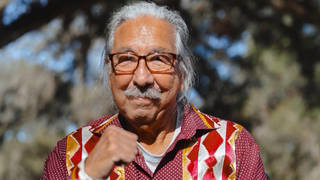
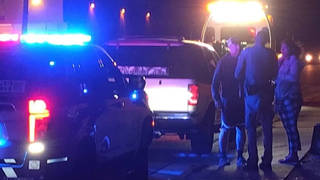
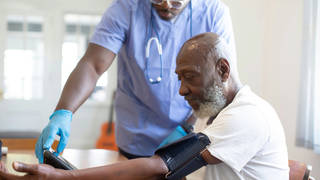
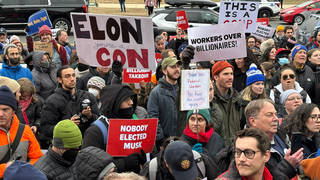





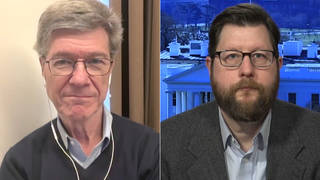
Media Options